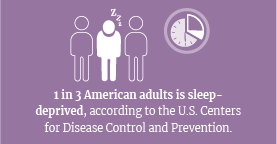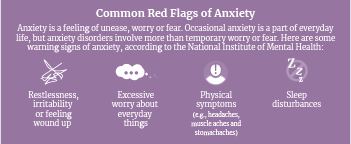The Art of Waking Up Refreshed
Some people wake up ready to take on the day, while others may need more time or a cup of coffee to start their day. Regardless of which camp you’re in, there’s an art and a science to waking up refreshed in the morning. Unfortunately, many fall short when it comes to getting enough sleep. But we’re here to help you Live Well Work Well – February 2023!

So, what’s the trick to waking up refreshed? First and foremost, getting enough quality sleep each night is a critical first step. Sleep experts recommend that adults get at least seven to nine hours of sleep nightly. Additionally, consider these tips to improve the quality of your shuteye and improve your chances of waking up energized:
- Keep a consistent sleep schedule and routine. Try your best to have the same wake-up and bedtimes, regardless if it’s a weekday or weekend.
- Set one alarm—and make it a happy tone. Wake up when your first alarm goes off and resist hitting the snooze button. While at it, select an alarm tone on your cellphone that is cheerful or upbeat to kickstart a good mood.
- Practice gratitude. Grateful thinking and moods can help you sleep better and longer, so focus on having a positive outlook. Consider keeping a gratitude journal to reflect on daily entries of what you’re grateful for. Alternatively, you can focus on positive thoughts and what you’re excited to do or achieve the following day. An attitude of gratitude can help keep pessimism or worrisome thoughts at bay.
- Practice good sleep hygiene. Sleep experts recommend avoiding exercising or eating spicy foods close to bedtime and sleeping in a cool dark room.
It takes more than one night to see a change in your sleep habits, so stick with it and try it out for at least a week. Talk to your doctor if you continue to have concerns about your sleep quality.
The Importance of Anxiety Screening
The U.S. Preventive Services Task Force (Task Force) now recommends that adults under the age of 65 get regularly screened for anxiety. It’s meant to help primary care clinicians identify early signs of anxiety, which can go undetected for years. This is the first time the agency has recommended anxiety screening in adult primary care without symptoms.
The Task Force noted that the lifetime prevalence of anxiety disorders in adults in the United States is 40.4% for women and 26.4% for men. The recommendation was prioritized due to anxiety’s public health influence and the country’s increased focus on mental health in recent years. The guidance stops short of recommending anxiety screening for people 65 and older since many common symptoms of aging—such as trouble sleeping, pain and fatigue—can also be symptoms of anxiety.
If you already show signs or symptoms of anxiety, contact your doctor to be assessed and connected to care. Anxiety screening tools, including scales and questionnaires, have been developed and are available in primary care.
Boost Your Immunity With Nutrition
This winter, cases of the common cold, the flu, RSV and COVID-19 are prevalent. Since a healthy diet can help boost your immune system, it’s crucial now more than ever to take care of your body so it can fight off infectious diseases. Consider the following immune-boosting diet tips:
- Focus on putting nutritious foods into your body. Your body absorbs nutrients from whole fruits, vegetables, nuts, grains and proteins more efficiently than processed foods or supplements.
- Limit inflammatory foods such as those with refined carbohydrates, trans fats, high-fructose corn syrup, refined oils and high sodium content. Think of it as limiting or avoiding processed and fast food when possible.
- Choose fruits, vegetables (especially leafy greens), nuts, fatty fish and olive oil. Focus on fueling your body with healthy foods that include dietary fiber, nutrients or probiotics.
- Stay hydrated and drink enough water for your body to operate at its best.
Check out last month’s edition of Live Well Work Well – January 2023.
All of us here at CoverLink wish you continued health and safety this year!
